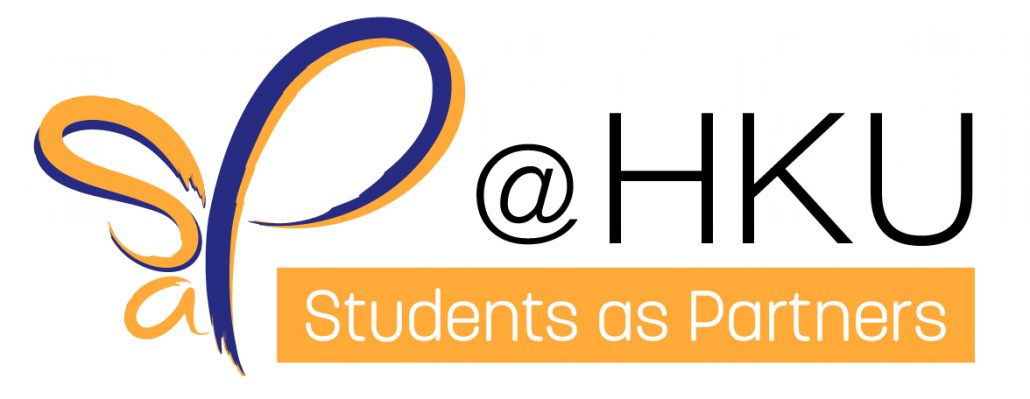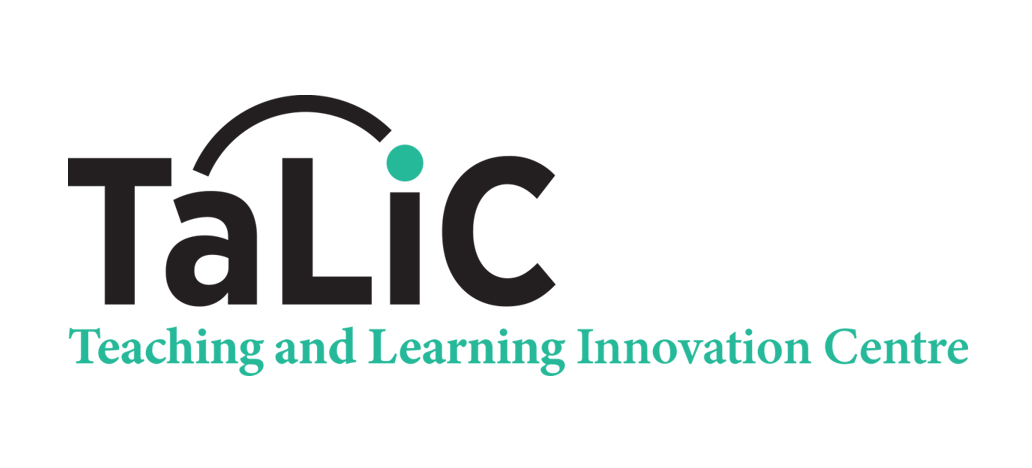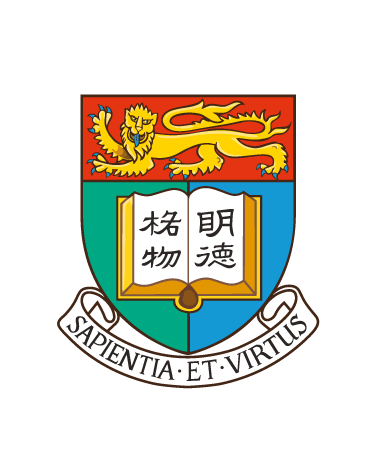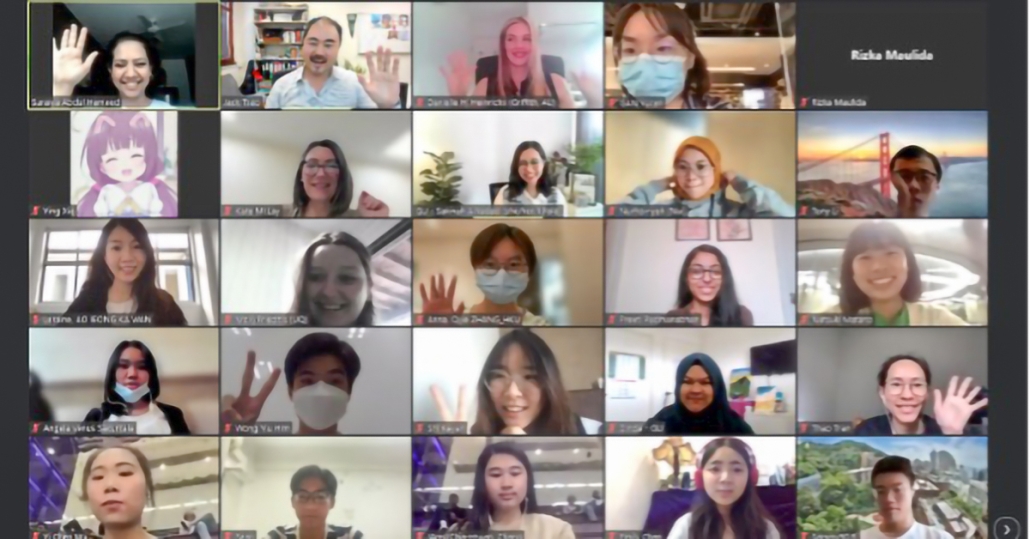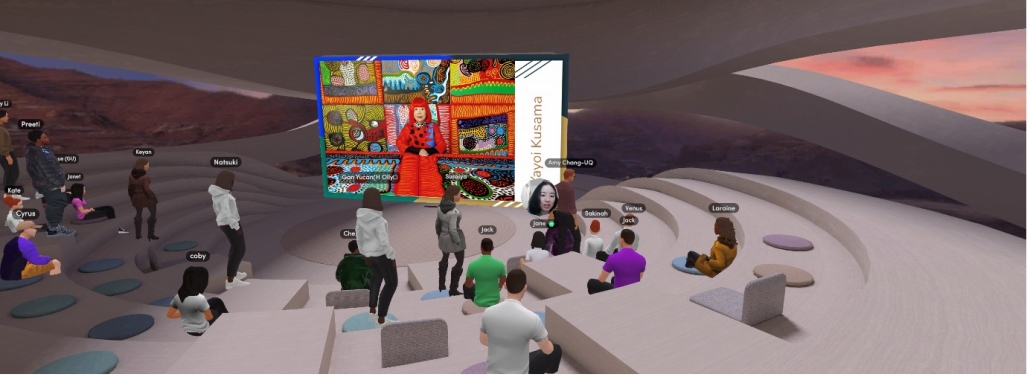Students As Researchers: Exploring Student Well-being in Hong Kong and Australia
Dr Jack Tsao, Associate Director, Common Core, HKU
Teachers and students from the participating universities.
Students-as-partners (SaP) initiatives, which involve students in the co-creation of their education and the broader university experience, aim to empower students and enhance their sense of agency and ownership in their learning journey. Our 10-week cross-institutional international virtual exchange (IVE) research project followed a SaP framework to involve undergraduate and postgraduate students from the University of Hong Kong (HKU), the University of Queensland (UQ), and Griffith University (GU) in investigating the concept of student well-being across Australia and Hong Kong. The programme was co-led and co-facilitated by Dr Suraiya Hameed (UQ), Dr Kate McLay (UQ), Dr Danielle Heinrichs (GU), Dr Sakinah Alhadad (GU), and Dr Jack Tsao (HKU) but engaged students partners in authentic and constructive dialogue to uncover their experiences of well-being as the actors and experts in their contexts. Well-being is often misunderstood or overlooked in higher education, despite being a critical component of students’ overall success and satisfaction. In the contemporary context, students face numerous challenges and responsibilities, including coursework, GPA stress, relationships, adjusting to campus life, economic pressure, anxieties about future work, social injustice, and the broader impacts of COVID-19. As a result, universities have started to recognise the importance of cultivating a comprehensive health culture on their campuses, including incorporating well-being initiatives into policies and procedures for thriving, not simply surviving.
A virtual classroom session conducted via Spatial
The IVE research project utilised a participatory design enquiry-based methodology, with students as researchers, to investigate student well-being in the two cultural milieux. By involving students in the research process and listening to their experiences and perspectives, universities can better understand and support the well-being needs of their diverse student body. The students collaborated in small groups in refining and exploring research questions centred around related themes of everyday experiences, intersectionality and multidimensionality, self-identity and Covid-19, and digital technology use. Each week, students participated virtually in interactive and experiential workshops as a continuous onboarding process for conducting their research and as an introduction to different approaches and concepts for exploring their topics, such as creating digital story maps, producing “Day in the Life” videos, and online art workshops. The appropriate use of digital technologies, such as Miro, Notion, GoogleDocs, Canva, and Spatial, was essential in capturing students’ voices and enabling collaboration. In addition to fostering teamwork and communication skills, these activities also helped the students prepare for the final event: an online “mini-conference” where they presented their research findings.
Students created “A Day in the Life” videos to explore everyday well-being practices.
Data generated through this project showed that food, interests, interpersonal relationships, relaxation, and personal time were critical components of students’ well-being in both cultural contexts. For example, HKU students identified that the lack of accessible food amenities and long wait times during lunch affected their ability to attend class, which had flow-on effects on their well-being. Students also highlighted the importance of cultural identity and belonging for international students, who may struggle with adjusting to a new culture and establishing a sense of community on campus. In addition to traditional methods of supporting well-being, the study also found how digital technologies can boost positive emotions and support healthy well-being. Furthermore, individuals’ multidimensional well-being may be affected by lived experiences of inequality, identity, and positionality. In summary, students intuitively understood that well-being is associated with seemingly mundane practices, but would benefit from deliberately cultivating these everyday routines and habits.
A garden is an applicable metaphor to describe this SaP research project, as each student partner drew on their backgrounds, experiences, biases, and perspectives to make unique contributions, with each plant adding to the overall composition, beauty, and function of the garden to cultivate a rich, nuanced, and complex understanding of student wellbeing. However, like any garden, successful SaP projects also need time, attention, and co-ordination to sustain and thrive. Some of the struggles we encountered included the difficulties of collaborating virtually, the time constraints on top of heavy course loads and time commitments, and how to encourage students to ‘accept’ greater autonomy. These issues were partially mitigated through carefully designed activities and setting time aside to foster socialisation and collaboration, and building flexibility into the programme. The students’ outputs, feedback, and challenges served as a framework for identifying sustainable improvements for transformative pedagogical and curriculum design and the next steps of actioning the students’ research findings of future related offerings.
Overall, this IVE project highlights the value of including students as partners in reflecting and co-creating a more supportive and inclusive well-being environment on campus that nurtures students’ socio-emotional skills and needs. The power and flexibility of SaP methodology can also develop undergraduate research competencies and graduate future readiness attributes around communication, collaboration, intercultural competence, and tackling ill-defined problems enshrined in HKU’s University Educational Aims.
“Bodymapping” exercise by the students
